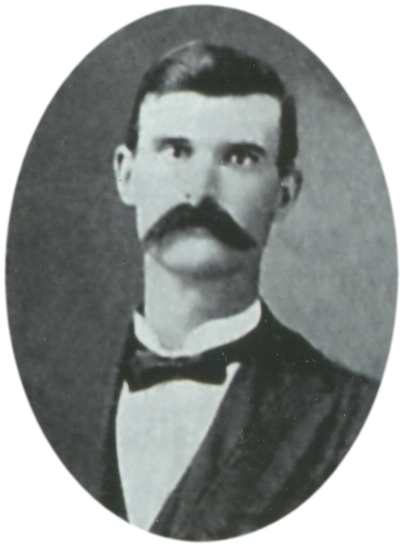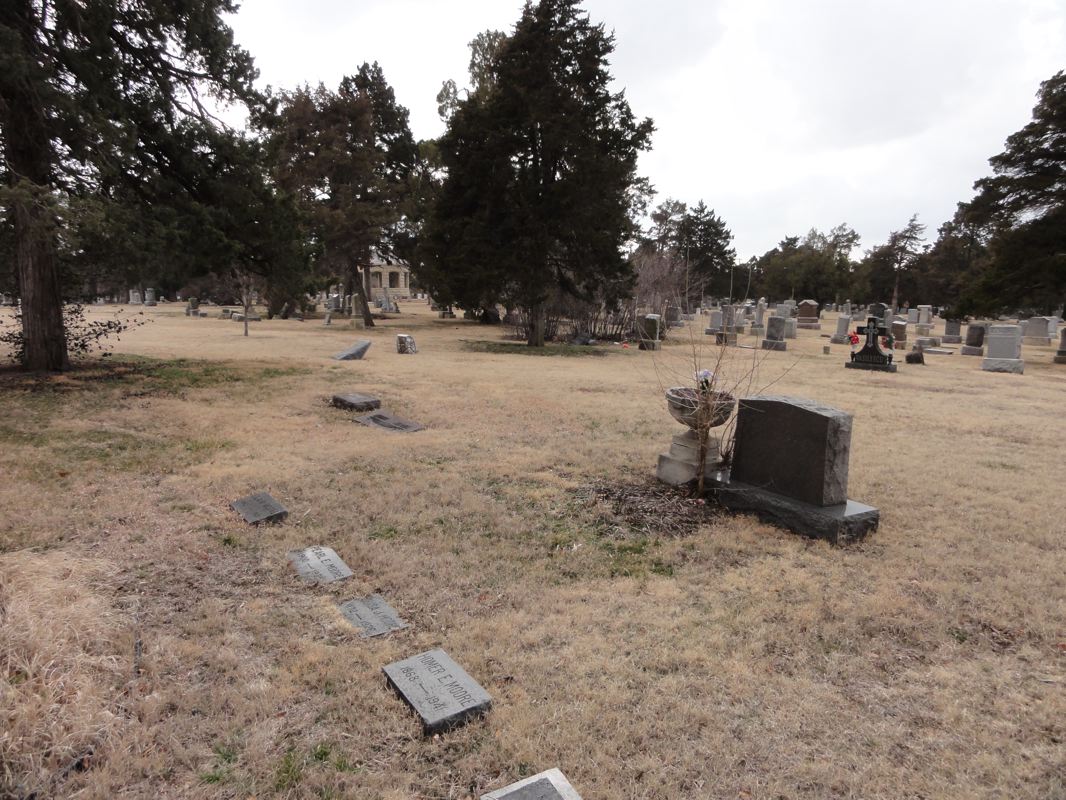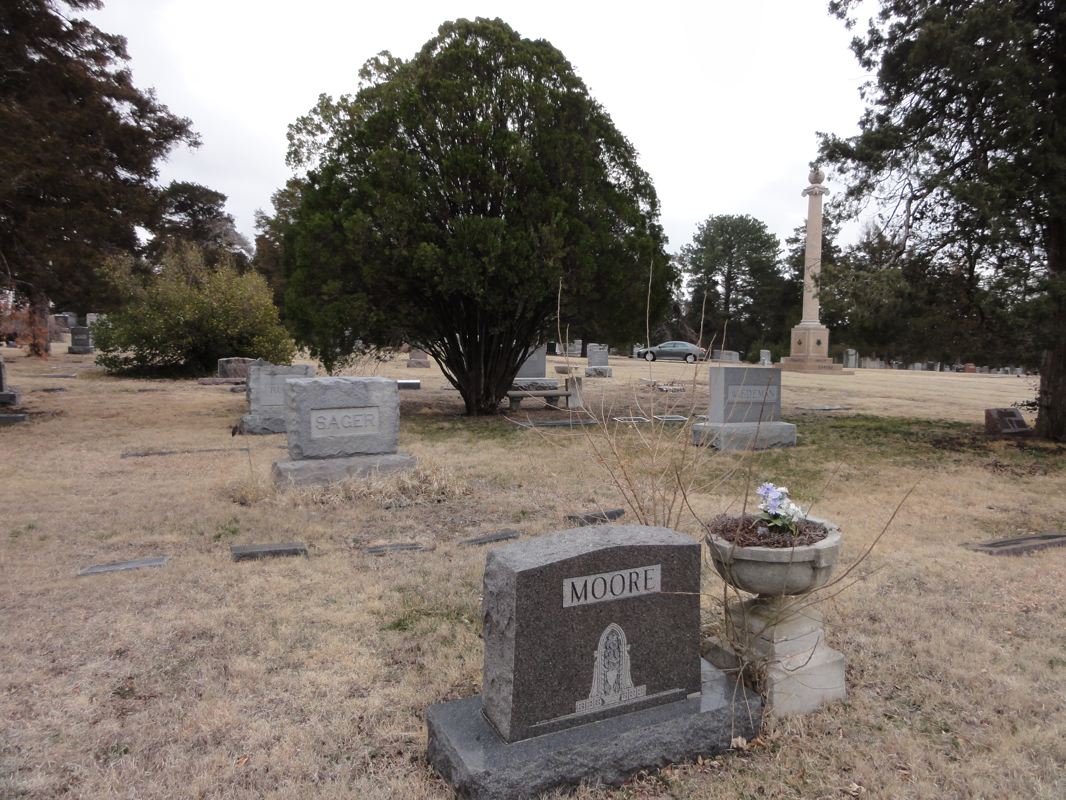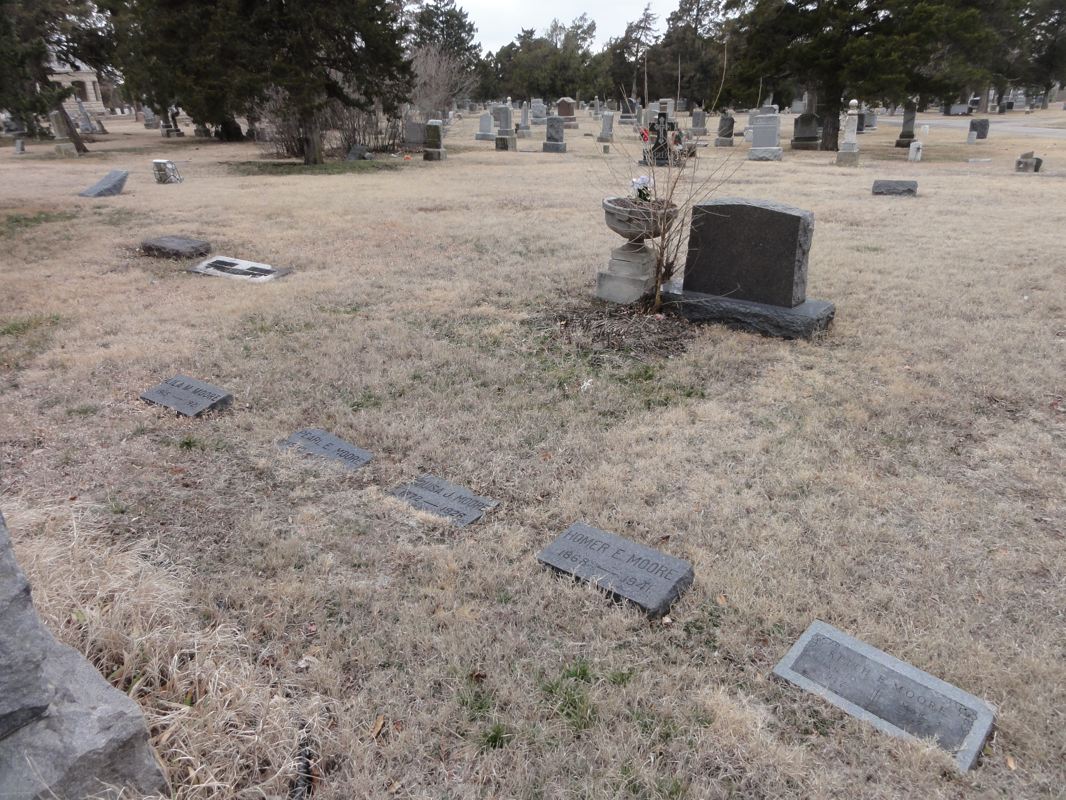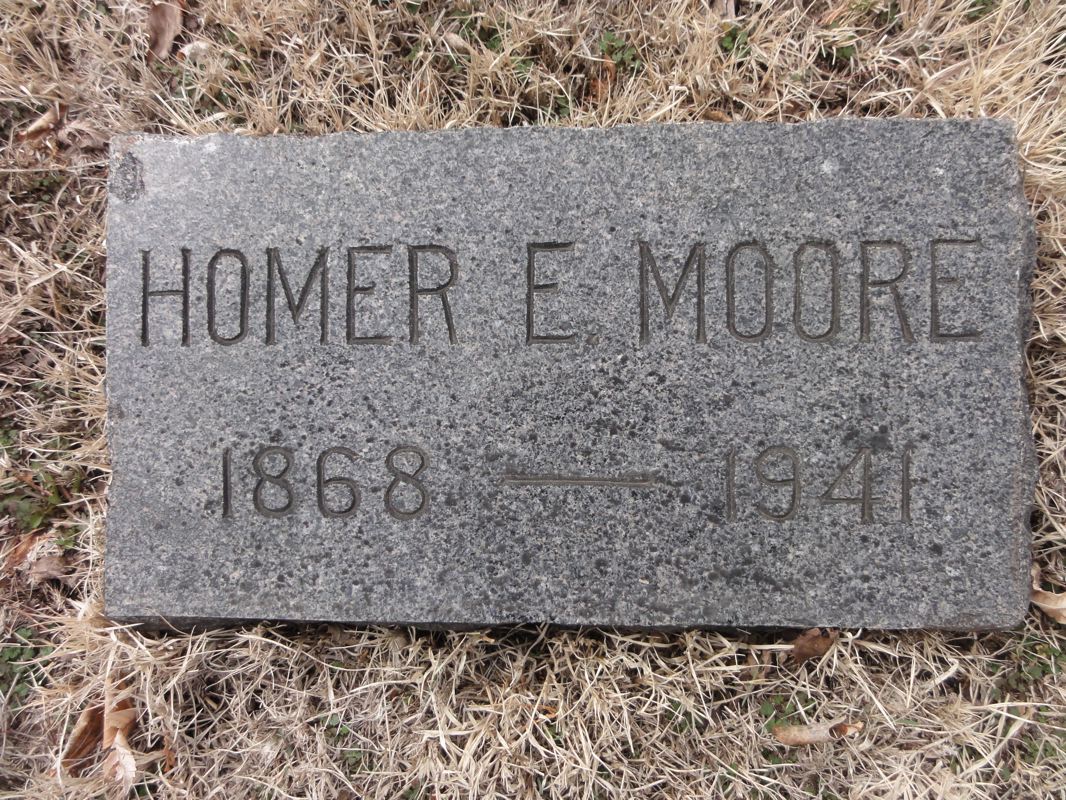Homer E. Moore
1868-1941
Biographical Sketch On The Life Of Homer E. Moore
Homer E. Moore, or "Mr. Christian Worker," will be long and lovingly remembered by thousands of God's faithful in the great heartland of these United States because of his pure Christian life, faithful devotion to the Lord's teaching, and faithful advocacy of that word through the pulpit and printed page. Circumstances of birth placed him in an area of the brotherhood where two distinct problems hampered the Lord's work. One was the digression that swept thousands away from the simple New Testament pattern of worship and church government. The other was "Sommerism," a divisive heresy, that badly fragmented what was left from the ravages of the "digression." This had to do with the right of brethren to build schools in which they could educate their children, the right of a preacher to live in a community and work with the church in that community on a full time basis, and the support of orphanages. (Brother Sommer abandoned his fight on these matters before his death.) Into this maelstrom Homer E. Moore's lot was cast, but he managed to keep his head and faith and to stand loyally for pure New Testament teaching while so many were going astray.
Brother Moore, one of the founders of The Christian Worker, and it's second editor, was born at Holder, near Bloomington, Illinois on April 10, 1868. He was reared in a Christian farm family, attended the available schools and did the work farm boys usually did. When he was sixteen years old he obeyed the gospel at Bloomington, but we do not know who baptized him. Four years later, at the age of twenty, he began to preach. In 1890, at the age of twenty-two, he enrolled in The College of The Bible at Lexington, Kentucky where the lamented J. W. McGarvey taught.
We do not know how he happened to go there, but family members still living think it was because Brother McGarvey was there. He stayed at Lexington two years, completing Brother McGarvey's "full course." Brother McGarvey had a profound influence for good upon him from that time to the end. (Sister Paul Moore, his daughter-in-law, has many of his class notes from those McGarvey classes.)In 1892 or '93 he moved with a rather large "colony" of people from Illinois to Panama in Lancaster County Nebraska, a short distance southeast of Lincoln. This group consisted of a number of business people and farmers. His parents must have been a part of the group, for they acquired a two story business building in Panama and his mother ran a millinery shop in the front of it on the first floor. Back of this was the Post Office, then the telephone exchange, and in the very back, Homer E. had a print shop in which he published the Panama Union, the local newspaper, and began the publication of a religious paper called The Panama Christian, later called The Primitive Christian. W.F. Parmiter, of whom we have no further information, was associated with him in this work. The family lived on the second floor of this building. We have no information about when or how he became involved in the printing business, but he must have had considerable experience with it before going to Nebraska.
On December 15, 1892 Brother Moore was married to Miss Louisa J. Craig. Her parents were members of the United Brethren church and she had been reared in the rather strict tenets of that faith. Much of that upbringing remained with her throughout life. Brother Moore baptized her into Christ about six months before they were married. Eight children were born to them. One, Lila, died in infancy; Glen died in early childhood; and Pearl lost her life in an accident involving fire when she was twenty-five. The other five, Earl, Edith (Gingerish), Ruth (Sanders), Paul and Edna (Smith) survived their father. Only two are still living. They are: Earl, the oldest child, (He lives in a nursing home at Derby, Kansas.) and Edna, who lives in Wichita (Nov., 1980). Sister Moore passed away on April 27, 1926 at the comparatively young age of fifty-four. Five of her children survived her.
On the first of June, 1933, more than seven years after the passing of his first wife, Brother Moore was married to Sister Winfred Mason of Springfield, Missouri. She was the widow of M.S. Mason, a faithful and capable gospel preacher who suffered martyrdom while on a preaching trip in White County, Arkansas. He had gone to conduct a gospel meeting at the Bethel Grove church about five miles Northwest of Judsonia and was staying in the home of Brother Joe Miller who often kept the preacher during their meetings. His father, John Miller, was also staying there. Though he had once been a Christian, was no longer one, and seemed to "hate" preachers. About six forty-five in the evening of October 1, 1930 the family was getting ready to attend the evening service. Brother Mason had completed his preparations and was waiting for the others as he sat in the living room going over his sermon for the last time. John Miller quietly entered the room and fired a blast from a shot gun into Brother Mason's head just behind his right ear. (For a fuller review of this see Arkansas Angels by Boyd E. Morgan.) After Brother Moore and Sister Mason were married she helped much with The Christian Worker, and came to publish The Christian Woman, a Christian publication for women.
While in Nebraska Brother Moore did much traveling to preach and to extend the circulation of his paper. These trips took him to Wichita, Kansas where he was able to get a number of subscribers. Some trouble developed in Panama, Nebraska with some of the "digressive" brethren. It seems that some of them wanted to have the Church own his paper and have it controlled by a "head office" somewhere else. Of course he would not submit to this! In 1903 he moved the Primitive Christian to Wichita, Kansas and changed the name of it to The Christian Companion. Later he sold this paper and it was moved out of the state and finally discontinued. In 1912 D.T. Broadus moved to Wichita. We do not know when he and Brother Moore first met, but they became close friends and in 1915 established The Christian Worker. Brother Broadus was sixteen years older than Brother Moore and was the first editor, serving until his death in 1924 when Brother Moore assumed that position and held it to the end of his life.
Through all these years Brother Moore preached by appointments in nearby places, held many meetings, and helped the church in Wichita. For more than twenty years he went regularly to Bethel about twenty miles northeast of Wichita. In Nebraska he had begun to use a bicycle and continued this after moving to Wichita. He would often ride it to the depot, take it with him on the train and use it when he got to his preaching place. He sometimes used a horse and buggy, often taking his whole family with him. In the early twenties he got a Model T Ford with his son, Paul, usually serving as the driver. The first time he met with the saints in Wichita there were eight adults meeting in a private home. Later they met in two different rented halls on Market Street. At one period they rented a Seventh Day Adventist building on the West side of town. In these first years his office was at 705 N. Main Street. Brother Moore finally bought a lot at First and Matthewson Streets and gave it to the Church with the understanding that he would operate his printing business in one section of the basement. In 1923 the Arkansas river flooded, filled the basement, and ruined his library and much other material stored there. Later he acquired the property on the north side of the meeting house and built a residence that had room for a book store and the print shop.
Through all these years he was preaching everywhere he could, helping with the work in Wichita by serving as one of the first men to be appointed to the eldership in that city, a service he continued for a third of a century. He was always interested in the growth of the Church, and sought to build every congregation in Wichita and elsewhere. His meeting work took him to Nebraska, Kansas, Colorado, Oklahoma, Iowa, Missouri, and Kentucky. In the early years he had some debates, but we have no certain information about them.
He was held in high esteem by brethren throughout the land and in the Memorial Edition of The Worker following his death, many wrote to express their feelings about him, and many of them mentioned his lack of jealousy for other preachers and his great interest in young preachers, along with the help he so willingly gave them. This reminds me of an incident I knew about a long time ago soon after I began to preach. Charles Latimer, a young preacher I had met at Harding College, and with whom I retained a close friendship to the end of his life, decided to publish a Christian paper. He began work on it and wrote to a number of prominent brethren about it, many of whom did not bother to reply. But Brother Moore did reply and Charles was pleased with the encouragement Brother Moore gave him. The paper did not last long, but Charles' warm feeling for Brother Moore did. If I counted correctly, there are sixty-two tributes from that many preachers, including many of the best known in the brotherhood, in the Memorial Edition of The Worker. Many of them mentioned his quiet and unassuming manner. C.L. Wilkerson called him a "good man and just." Rue Porter recalled C. Roy Bixler had once said to him: "If Homer E. Moore misses heaven, there will be no chance for any of us." Brother Porter continued: "I sincerely say if I reach heaven at last I am certain I shall meet him there." L. O. Sanderson said: "His life was a quiet unassuming one, but useful and influential; and during his earthly pilgrimage he brought many into the marvelous light of Christianity through his life, speech, and printed page." E. M. Borden said: "Eternity alone can reveal the good that has been done by his efforts. We will miss him." And so it went for page after page of sincere commendation from his fellow workers in the Kingdom.
Brother Moore often prayed: "That our last days
may be our best days" and "that we may have a peaceful time in
which to depart this life." At the end his health began to fail and
all knew that the parting could come at any time. On December 14, 1941 he
started to the morning worship and became ill on the way. They returned
home, and with his wife and son, Paul, communed alone that afternoon for
the last time. He seemed to rest better that afternoon and for the next
four days was hoping that he would improve so he and Sister Moore could
make a planned trip to Springfield, Missouri for the holidays. He did get
up a few times, and on Friday, the nineteenth went to the table at noon.
He soon remarked that he had made a mistake in getting up and then
returned to his bed. He then said to Sister Moore: "I can't make it
this time," then, "mamma, I'm going home." At twenty
minutes after one that afternoon his spirit took its flight to God who
gave it. He had passed the threescore and ten mark by a little more than
three years. The following Monday, December 22, C. Roy Bixler,
G. K.
Wallace, and Rue Porter conducted the final service. The music was
provided by a quartet of faithful Christian brethren.
"Multitudes" attended the service and the body of clay was laid
to rest in the Maple Grove cemetery in Wichita.
Sister
Winifred Mason Moore continued
for several years and passed away. She remarried
G. H. P. Showalter, editor of the Firm Foundation. Upon his death in
1954, she returned to Springfield, Missouri, the home of her first
husband, M.S. Mason. She finally died in the
Spring of 1956, and is buried
It is impossible to know the good done by such a man. He influenced so many by his personal life and his teaching through the printed page and from the pulpit. Many of the Kansas churches were small and often severely harassed by false teachers, but Brother Moore was a tower of strength to them in every trial. He was a great and good man, and his influence will live ... always. May God bless his memory.
-Gospel
Preachers Of Yesteryear, by Loyd L. Smith, Originally Published in 1980
-Note: This is a timed piece. Some of those mentioned as living are now deceased.
![]()
Location Of The Grave Of Homer E. Moore
At 1000 N. Hillside in Wichita, KS, turn east into the main entrance of Maple Grove Cemetery; the office will be immediately on your right. Instead of turning into the office parking lot, turn left and proceed north; section "I" will be on your left; the sections are marked with stone posts with the letter engraved on the top. Watch for the Abbey (large building) on your right; the Abbey is in section A. Go past the Abbey and turn right, keeping section A on your right. As you turn, section C will be on your left. Stop at the place where there are stone posts on both sides of the road (marking section C on your left and section H on your right). From here you will look a few yards ahead and to the left, and you will see a very large Masonic monument. About 35 yards NW of this Masonic monument is a Moore family stone with a concrete flower planter beside it. The individual Moore graves are in the next row east of the family marker.
While visiting Maple Grove be sure to visit the grave of J.E. Cain
-Special Note Of Thanks Is Extended To Joe Slater, Preacher For The Church Of Christ In Augusta, Kansas. He Willingly Drove Over To Wichita, Kansas And Found The Grave Of Homer E. Moore, Took Pictures, Had Them Developed And Sent Them To Me For Production Of This Site. He Also Has Provided The Good Directions To The Grave Below.
GPS
37.704822,-97.297208
View Larger Map
![]()
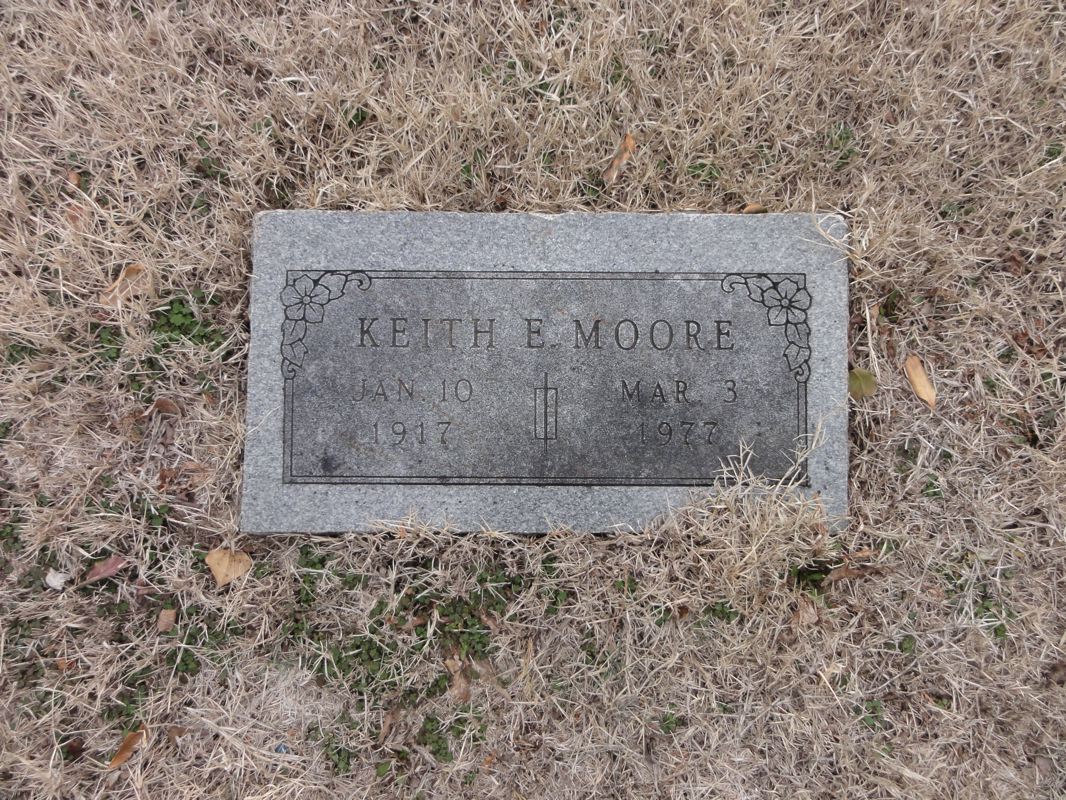
Keith E. Moore
January 10, 1917
March 3, 1977
Son of Homer E. & Louisa J. Moore
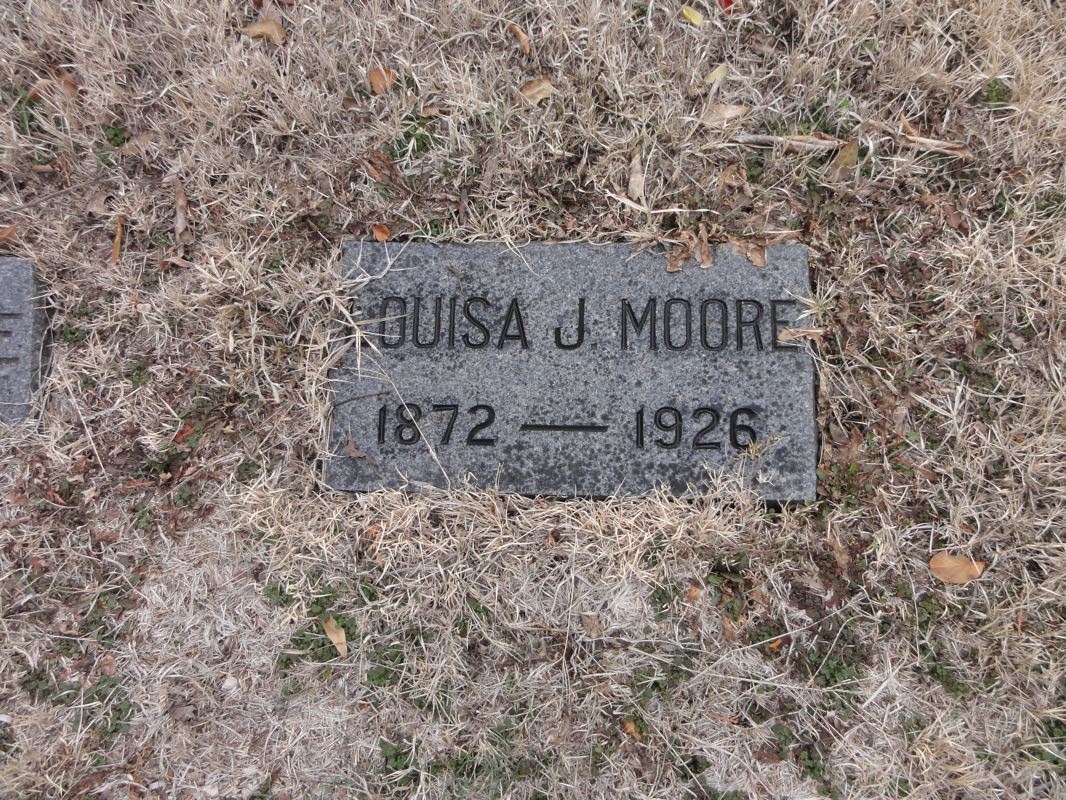
Louisa J. Moore
1st Wife of Homer E. Moore
1872-1926

Pearl E. Moore
daughter of Homer E. & Louisa J. Moore
1900-1925
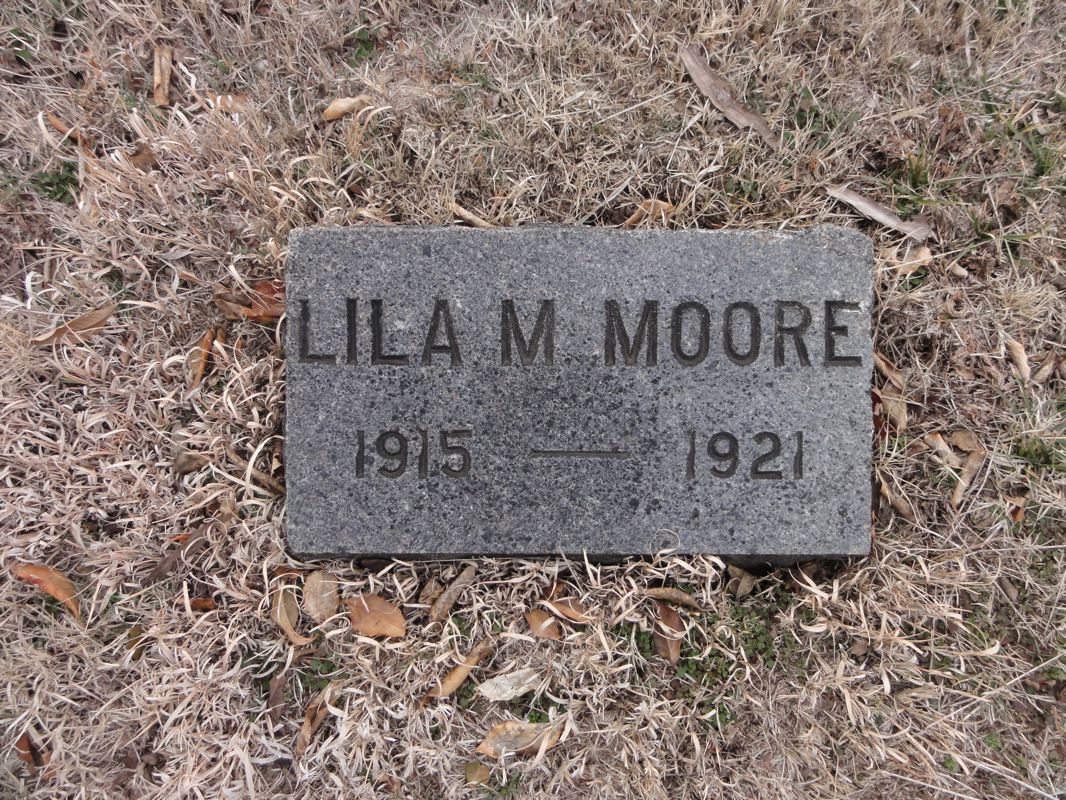
Lila M. Moore
Daughter of Homer E & Louisa J. Moore
1915-1921
![]()
